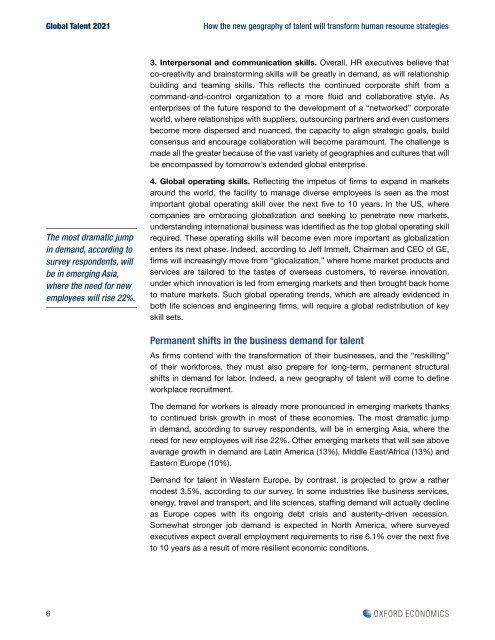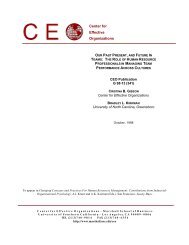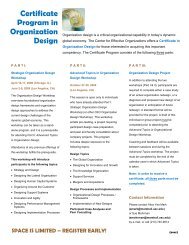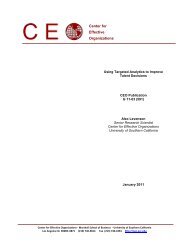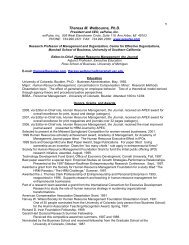Global Talent 2021 - Oxford Economics
Global Talent 2021 - Oxford Economics
Global Talent 2021 - Oxford Economics
- No tags were found...
You also want an ePaper? Increase the reach of your titles
YUMPU automatically turns print PDFs into web optimized ePapers that Google loves.
<strong>Global</strong> <strong>Talent</strong> <strong>2021</strong>How the new geography of talent will transform human resource strategies3. Interpersonal and communication skills. Overall, HR executives believe thatco-creativity and brainstorming skills will be greatly in demand, as will relationshipbuilding and teaming skills. This reflects the continued corporate shift from acommand-and-control organization to a more fluid and collaborative style. Asenterprises of the future respond to the development of a “networked” corporateworld, where relationships with suppliers, outsourcing partners and even customersbecome more dispersed and nuanced, the capacity to align strategic goals, buildconsensus and encourage collaboration will become paramount. The challenge ismade all the greater because of the vast variety of geographies and cultures that willbe encompassed by tomorrow’s extended global enterprise.The most dramatic jumpin demand, according tosurvey respondents, willbe in emerging Asia,where the need for newemployees will rise 22%.4. <strong>Global</strong> operating skills. Reflecting the impetus of firms to expand in marketsaround the world, the facility to manage diverse employees is seen as the mostimportant global operating skill over the next five to 10 years. In the US, wherecompanies are embracing globalization and seeking to penetrate new markets,understanding international business was identified as the top global operating skillrequired. These operating skills will become even more important as globalizationenters its next phase. Indeed, according to Jeff Immelt, Chairman and CEO of GE,firms will increasingly move from “glocalization,” where home market products andservices are tailored to the tastes of overseas customers, to reverse innovation,under which innovation is led from emerging markets and then brought back hometo mature markets. Such global operating trends, which are already evidenced inboth life sciences and engineering firms, will require a global redistribution of keyskill sets.Permanent shifts in the business demand for talentAs firms contend with the transformation of their businesses, and the “reskilling”of their workforces, they must also prepare for long-term, permanent structuralshifts in demand for labor. Indeed, a new geography of talent will come to defineworkplace recruitment.The demand for workers is already more pronounced in emerging markets thanksto continued brisk growth in most of these economies. The most dramatic jumpin demand, according to survey respondents, will be in emerging Asia, where theneed for new employees will rise 22%. Other emerging markets that will see aboveaverage growth in demand are Latin America (13%), Middle East/Africa (13%) andEastern Europe (10%).Demand for talent in Western Europe, by contrast, is projected to grow a rathermodest 3.5%, according to our survey. In some industries like business services,energy, travel and transport, and life sciences, staffing demand will actually declineas Europe copes with its ongoing debt crisis and austerity-driven recession.Somewhat stronger job demand is expected in North America, where surveyedexecutives expect overall employment requirements to rise 6.1% over the next fiveto 10 years as a result of more resilient economic conditions.6OXFORD ECONOMICS


